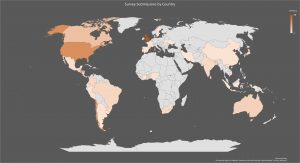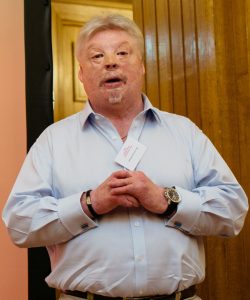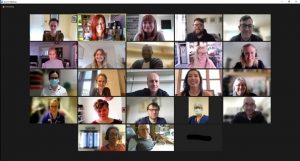April 2025
What research needs to be prioritised in global burns – results from a project spanning 88 countries
Members of staff from the Bristol Centre for Surgical Research collaborated with the James Lind Alliance & burns survivors, clinicians & carers from 88 countries to determine the Top 10 unanswered questions in global burns research.
Each year, more than 11 million people worldwide suffer serious life-changing burns, affecting both adults and children. The largest-ever project of its kind — the Priorities in Global Burns Research partnership, led by the University of Bristol — has identified the top 10 priorities in burns care research from 88 countries. The findings are published today [23 April] in The Lancet Global Health.
Burn survivors often experience lifelong disabilities, post-traumatic stress disorder, depression, anxiety, and pain. This new project, funded by the National Institute of Health and Care Research (NIHR) and facilitated by the James Lind Alliance, aimed to identify knowledge gaps in burns care that are most important to survivors, carers and healthcare professionals in order to guide future research and treatment improvements worldwide.
Researchers from Bristol Medical School surveyed over 1,600 people, spanning 6 continents, on their experiences of burns care and treatment. Participants in the study, comprising survivors, their families, carers and healthcare professionals, were asked to complete a survey and take part in workshops to agree the top 10 most important unanswered research questions in global burns care.
The project revealed some differences between high- and low-income countries, particularly in the areas of stigma, cost-effective treatments, and long-term care. However, the survey found psychological effects were one of the most challenging aspects for all burns survivors, regardless of where they lived.
The project is part of the late Professor Amber Young’s NIHR Advanced Fellowship. Professor Young, was based at the Bristol Centre for Surgical Research, and NIHR Bristol Biomedical Research Centre (NIHR Bristol BRC) and was a Consultant Paediatric Anaesthetist at University Hospitals Bristol and Weston NHS Foundation Trust (UHBW), who dedicated her work to improving burns care for patients all over the world. Amber very sadly passed away in September 2022, after living with Stage 4 cancer for a number of years.
Jane Blazeby, Amber’s friend, colleague and Professor of Surgery at Bristol Medical School: Population Health Sciences (PHS), who has continued the project, said: “This project is very much Amber’s legacy, which has created a lasting impact of offering hope to improve treatment for burn patients and improved quality of life for burns survivors – a testament to Amber’s determination, kindness and tenacity.”
Hollie Richards, a Senior Research Associate at NIHR Bristol BRC, who worked with Amber for a number of years and co-ordinated the Priorities in Global Burbs Research partnership, added: “It’s been a privilege to collaborate with this community of burns clinicians and survivors, and I’m honoured to have completed this work for Amber. The top ten priorities represent the experiences and views of hundreds of people all over the world, and demonstrate the extent to which research needs to address the disparities, inequities and gaps in care to improve outcomes for burn survivors.”
Suzannah Kinsella at the James Lind Alliance, added: “Despite the severity of burns, high-quality research in burn care is lacking, leading to disparities in treatment and care standards. The next step is for researchers and clinicians to translate these priorities into actionable studies to enhance global burn care.”
The Priorities in Global Burns Research Partnership is a collaboration between the University of Bristol and James Lind Alliance, and funded by the National Institute for Health and Care Research (NIHR).
August 2023
We have been very busy behind the scenes analysing all of the responses we received from our first survey. Over 1600 people from 79 countries told us what is most important to them about burns care. Thank you so much to everyone who took part!
Our second survey will be ready to launch soon! This survey will be a list of questions about global burns care, which have come from all of the responses to survey 1. This time, we would like you to pick which of these questions are most important to you to help us find the Top Ten most important unanswered questions for global burns care. This Top Ten will shape the future of international burns research, and will make a difference to burns patients, their carers and health care professionals all over the world.
October 2022
It’s with great sadness that we share the news that our project lead has died. Dr Amber Young, Honorary Professor of Burns care at the University of Bristol, passed away peacefully at home in September 2022 from breast cancer, for which she had been receiving treatment for a number of years. Amber was a kind and courageous person who led our project with passion and determination, despite her illness. Our team will miss her very much, but we will continue her vision to improve burns care for patients and survivors all over the world.
You can read more about Amber’s amazing achievements in her obituary here:
October: Dr Amber Young | News and features | University of Bristol
June 2022
Our survey is truly global! We’ve now had responses from 66 countries. There’s still time to complete our survey – it will be open until the end of July.

April 2022
Have you completed our survey yet? So far we’ve had responses from 44 countries! You can see on the map below which countries we’ve had responses from – the darker orange means we’ve had more responses from that country.

So far we’ve had the most responses from the the UK, USA, Chile, Honduras and Canada.
We’ve also just launched the Whatsapp version of the survey!
If you’d like to complete the survey from within Whatsapp you can send a Whatsapp message to 07977901943.
March 2022
Our survey is now live! We currently have versions available in English, Spanish, French and Chinese (simplified). Soon we will also have versions available in Arabic, Hindi, Brazilian Portuguese and Bengali. We will also make a version survey (in English) that can be completed on Whatsapp. Lots of exciting things happening at the moment, if you’d like to find out more you can keep in touch with us here and you can take part in the survey here.
We’re also very pleased to have the backing of Simon Weston CBE. Simon is a Welsh veteran of the British Army and is known for his charity work and recovery from severe burn injuries which he experienced during the Falklands War.
 “As a survivor of burns, and advocate for all those affected by and living with burns scares, I completely support the Global Burns Research Priority Setting project.”
“As a survivor of burns, and advocate for all those affected by and living with burns scares, I completely support the Global Burns Research Priority Setting project.”
Campaigner Simon Weston CBE (Image credit: The Scar Free Foundation)
January 2022
We held our second Steering Group meeting on 19th January. It was lovely to see our Steering Group members and update them on our progress, and to welcome some new international members. We now have representation on the Steering Group from Australia, Ghana, India, Iran, Taiwan, Uganda, UK, USA and Vietnam. This is important to make sure we are able to get the views of patients, survivors of burns, carers and health care professionals from different parts of the world, including areas where burns injuries are more common.

We’re planning to launch our first survey towards the end of February. You can follow us on Twitter @burnspriorities for the latest updates.
November 2021
We held our first Steering Group meeting on 28th October. It was great to meet everyone and to discuss our plans for the Priorities in Global Burn Research project. Steering Group members are patients and burn clinicians who bring really important experience and viewpoints to our project. This will make sure that we are always focusing on issues that are important to patients. As a group they will directly contribute to our plans and decision-making process. We’re looking to expand our Steering Group membership so we can have more international members. If you’re interested in joining us, please get in touch! You can email the Project Lead Dr Amber Young at amber.young1@nhs.net
Next, we’ll be finalising our Protocol document, which will explain what we’re going to do and how we’re going to do it. Once we’ve finished this, we will make it publicly available on the James Lind Alliance website.

